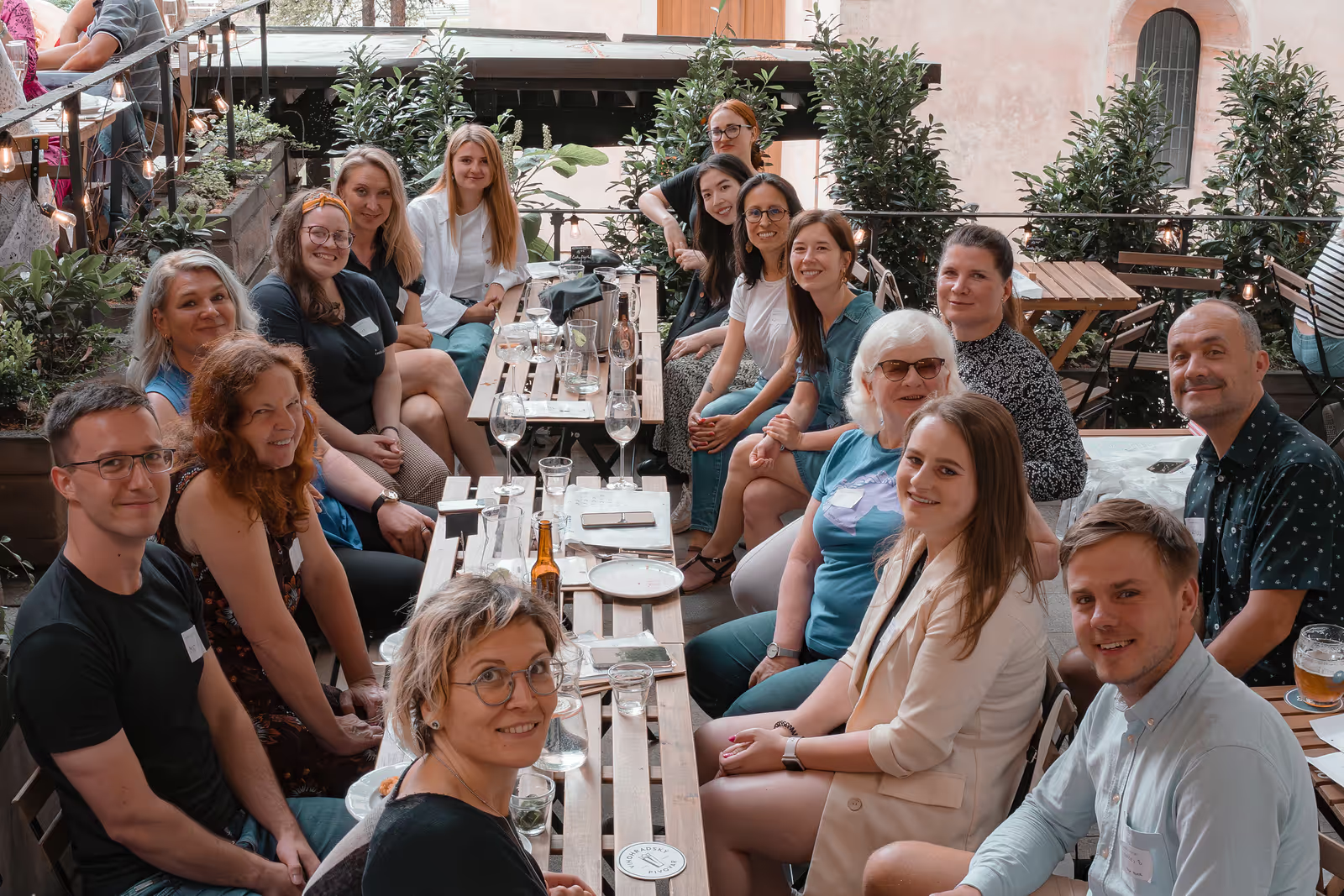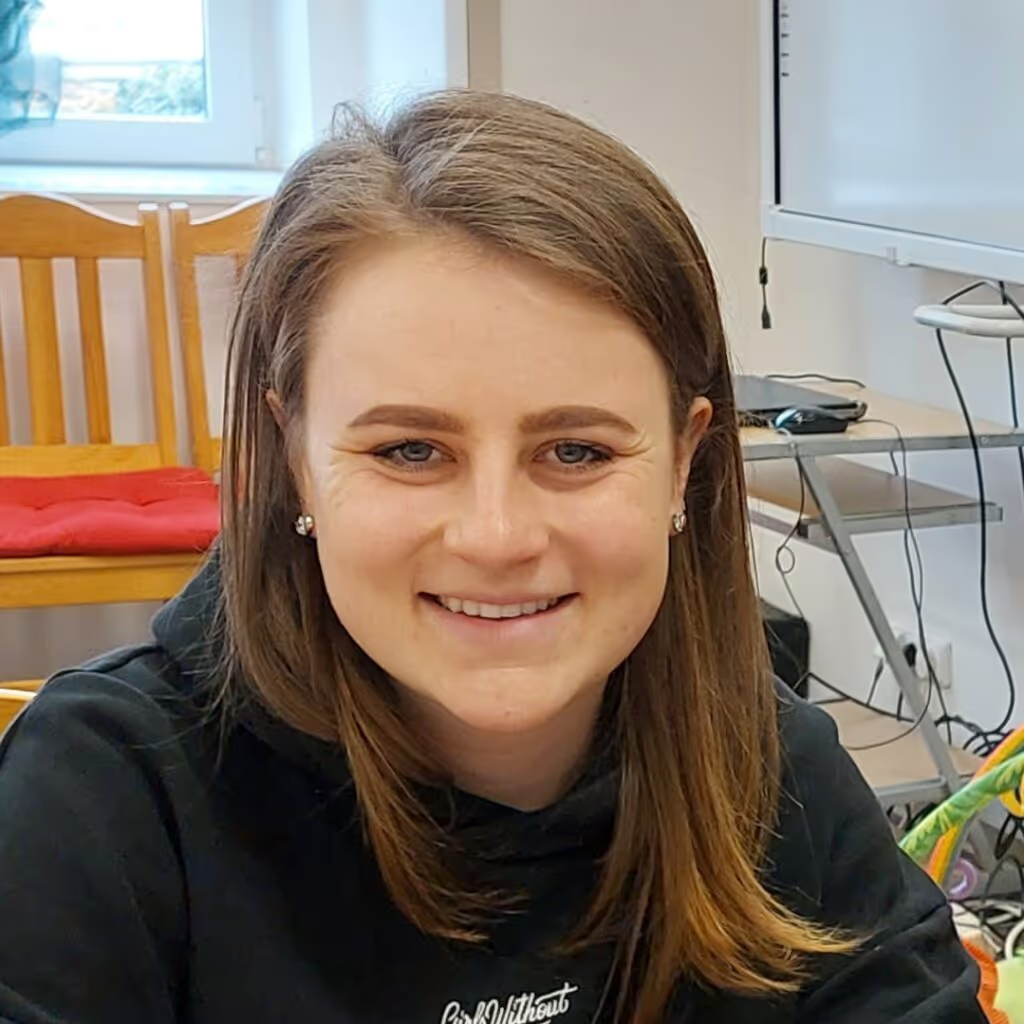Free online course Nezisk.Digital

or wrap efficiency around your finger!
The fall course is already full, thank you so much for your interest. Want to effectively digitize activities in your nonprofit? Click here and leave your contact information, we'll be in touch!


nonprofits from the fall run recommends the course to other organizations
representatives* of women NGOs are satisfied with the course
nonprofits successfully completed the
course
What will the course give your non-profit?
Analysis of the situation and problems
Mapping work processes
The most beneficial solution
Procedure for implementing the tool
For which non-profits is the course intended?
You are a small or medium-sized non-profit organization (about 5 to 50 employees).
You have the possibility to draw de minimis support in the amount of 62 397 CZK.
You work in the social sector (e.g. social care and helping disadvantaged groups).
You use (or will use before the course starts) the MS 365 or Google Workspace platform.
The course is based on 3 pillars
Developing soft skills
Without developing the soft skills of the team, digital tools cannot be effectively implemented and used. Therefore, you will learn to understand the needs of your organisation and employees, identify where digital technologies can bring you the most benefit, plan strategically or manage change.
Active learning
The course is practical - participants work on a real problem in their organisation. This allows immediate application of new knowledge, skills and digital tools.
Guided tours
You'll get your own guide* guide and other experts to provide expert guidance and support throughout the course. The commercial value of their help is equivalent to around 50,000 CZK for each organisation over and above the cost of the course itself, paid for by the MLSA grant. But they are helping you as volunteers, out of enthusiasm and pro bono!
How does the course work?

Introduction to the course
Onboarding process + tools for course participation
Linking the guide*guide and the organisation
Initial in-depth interviews

Module 1
Activities: analysis and search for the root cause of problems
Outcomes: selection of the problem to be addressed in the course
Retrospective: meeting with other course participants and the evaluator

Module 2
Activity: mapping a specific process
Outputs: mapped process and identified areas for digitisation
Open meeting Nezisk.Digital: Processes and Insights

Module 3
Activities: creating specifications and requirements for a suitable solution. Consultation with technical experts and specialists.
Outputs: the chosen procedure for solving the selected problem

Module 4
Activities.
Outputs: a plan for introducing a suitable solution into the organisation
Open meeting Nezisk.Digital: Results and inspiration

Conclusion of the course
Next steps
Output retrospective
Ceremonial end of the course
Who will guide you through the course?
Guide*guide
Tech-expert*ka
Evaluator*ka
Coordinator*
Frequently Asked Questions
Where can I find the exact schedule?
What if we have more questions or problems after the course?
What will be the outcomes of the course?
Can we get more members from our organization to join the course?
Where does the course take place? Do we have to go anywhere?
What technical skills does the course require?
What kind of support can we expect during the course?
Will we get a grant to buy a digital instrument?
What is de minimis aid and how do we know if we can benefit from it?
Is the course really free?
What topics can we cover in the course and when do we have to choose them?
What is the content and structure of the course and how does it work?
Is the course suitable for our non-profit?
How will the course help us and what will it achieve?
How much time will we have to devote to the course?
What does our nonprofit need to meet to be accepted into the course?
Impact of the Nezisk.Digital course


















